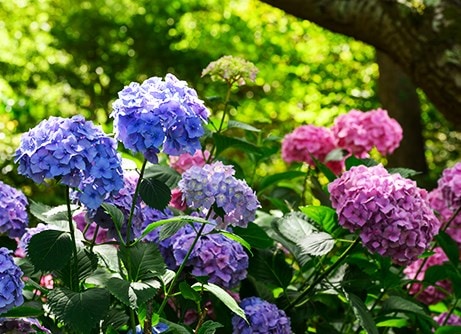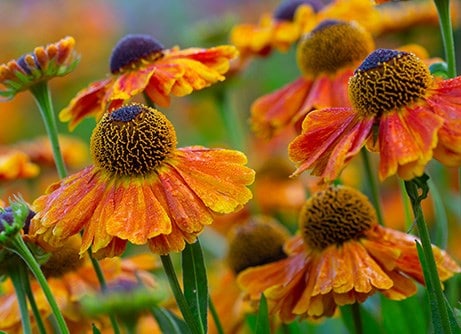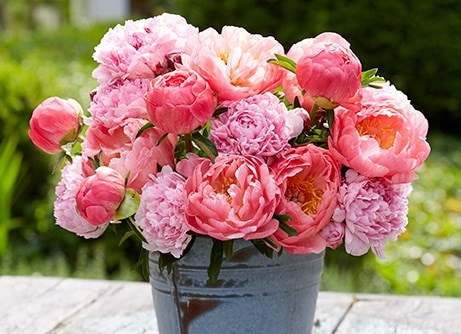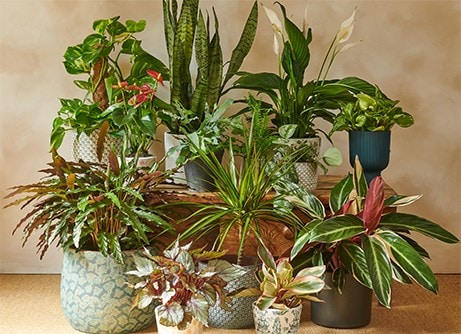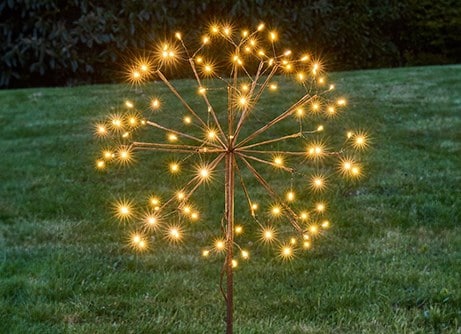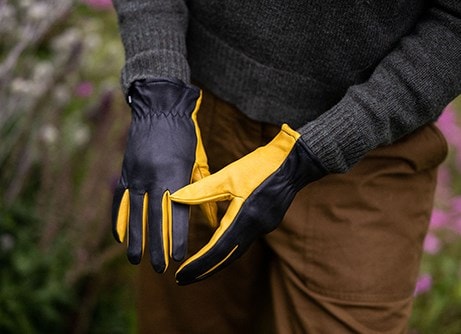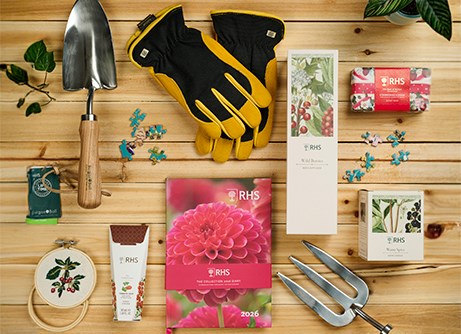
A show-stopping tuberous perennial dahlia with mid-green foliage and dark plum stems. Large, semi-cactus group blooms up to 20cm (8in) across appear from mid-summer to the first frost, with outer petals curling under to create a striking sunburst effect.
Dahlia 'Ludwig Helfert' displays warm orange tones with hints of saffron, perfect for summer and autumn borders. Strong stems support the spiky flowers, which add texture and contrast when massed or planted alongside grasses and darker foliage.
Ideal for cutting, these blooms bring vibrant colour to bouquets and arrangements. Thrives in full sun with fertile, moisture-retentive soil, and regular deadheading encourages long-lasting flowering.
Dahlia 'Ludwig Helfert' displays warm orange tones with hints of saffron, perfect for summer and autumn borders. Strong stems support the spiky flowers, which add texture and contrast when massed or planted alongside grasses and darker foliage.
Ideal for cutting, these blooms bring vibrant colour to bouquets and arrangements. Thrives in full sun with fertile, moisture-retentive soil, and regular deadheading encourages long-lasting flowering.
How to care for Dahlia Ludwig Helfert:
Dahlia tubers can be planted outside after frost, or started off in pots under glass in late winter to early spring. Plant them horizontally approximately 12cm (5in) deep, making sure the ‘eyes’ are uppermost. Allow enough room between each tuber so the plants can grow and spread to their full size without being overcrowded.
While in growth, provide a high-nitrogen liquid feed each week in June, then a high-potash fertiliser each week from July to September. Stake with canes or brushwood if it becomes necessary. In mild areas, leave them in situ over winter, but protect the crown with a generous layer of dry mulch.
In colder areas, carefully lift and clean the tubers once the first frosts have blackened the foliage and allow them to dry naturally indoors. Then place the dry tubers in a shallow tray, just covered with slightly moist potting compost, sand or vermiculite and store in a frost-free place until planting out again.
While in growth, provide a high-nitrogen liquid feed each week in June, then a high-potash fertiliser each week from July to September. Stake with canes or brushwood if it becomes necessary. In mild areas, leave them in situ over winter, but protect the crown with a generous layer of dry mulch.
In colder areas, carefully lift and clean the tubers once the first frosts have blackened the foliage and allow them to dry naturally indoors. Then place the dry tubers in a shallow tray, just covered with slightly moist potting compost, sand or vermiculite and store in a frost-free place until planting out again.
Flowering period:
- Jan
- Feb
- Mar
- Apr
- May
- Jun
- Jul
- Aug
- Sep
- Oct
- Nov
- Dec
Eventual height:
1m
Eventual spread:
0.5m
Position:
Full sun
Rate of growth:
Fast-growing
Soil:
Moderately fertile, moist, but well-drained soil, or general-purpose loam-based potting compost
Hardiness:
Borderline hardy (will need protection in winter in colder areas)
-
This bulb dies back after flowering each year and enters a period of rest ahead of regrowth the following season.
-
Humans/Pets: Ornamental bulbs - not to be eaten
Product options

1 × tuber
£5.99
In stock
(delivery within 2-3 working days)
(delivery within 2-3 working days)

3 × tubers
£16.00
£5.33 each
In stock
(delivery within 2-3 working days)
(delivery within 2-3 working days)
1
Delivery options (pick your preferred option at checkout)
Bulbs (only)£4.99
Named Day Delivery£10.99

